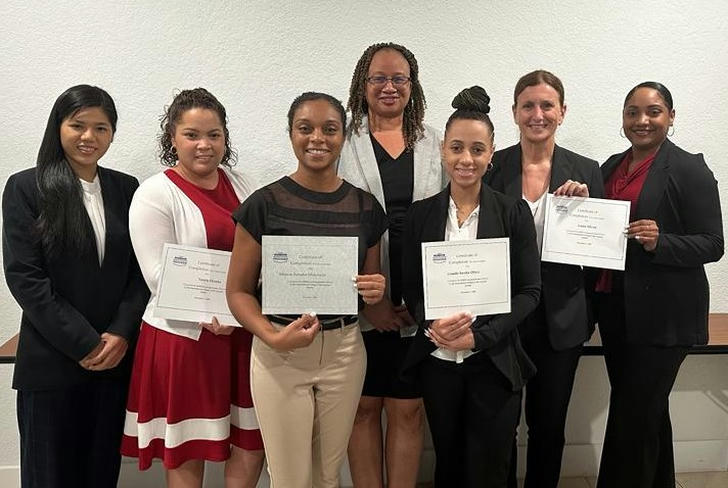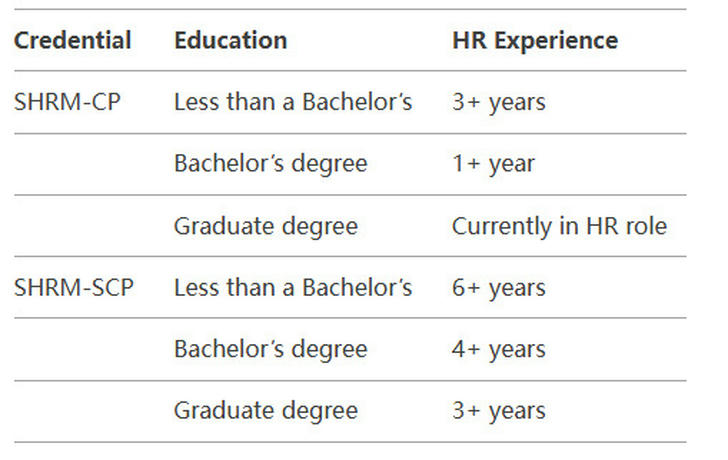Everything You Need to Know About SHRM Certification: Your Gateway to HR Success
If you’re in the human resources (HR) field—or looking to break into it—you’ve probably heard colleagues rave about the SHRM certification. Maybe you’re wondering: Is it worth the hype? How do I get it? And what’s the deal with those acronyms like SHRM-CP and SHRM-SCP? Let’s break it all down in plain English.

What Is SHRM Certification, Anyway?
First things first: SHRM stands for the Society for Human Resource Management, the largest HR professional organization in the world (with over 325,000 members globally). Think of them as the “gold standard” for HR education, resources, and—you guessed it—certifications.
SHRM offers two credentials:
• SHRM Certified Professional (SHRM-CP)
• SHRM Senior Certified Professional (SHRM-SCP)
These certifications are designed to validate your expertise in HR, whether you’re a mid-career pro or a seasoned leader. Unlike some older HR certifications, SHRM’s programs focus on real-world application of HR knowledge, blending technical skills with leadership and decision-making abilities.
SHRM-CP vs. SHRM-SCP: Which One’s Right for You?
The main difference boils down to your experience level:
SHRM-CP: Geared toward HR professionals who are implementing policies, serving as point-of-contact for staff, or executing HR strategies. Perfect if you’re early-to-mid-career.
SHRM-SCP: Tailored for senior-level HR leaders who develop strategies, lead HR departments, or influence organizational goals. Think HR directors, VPs, or consultants.
Still unsure? SHRM’s website has a handy eligibility quiz, but here’s a quick snapshot of requirements:

Note: “HR experience” means work where at least 51% of your duties are HR-related.
Why Bother Getting Certified?
Glad you asked! Here’s why HR pros swear by SHRM certifications:
Boost Your Career ( and Salary)
Certified HR professionals often out-earn their non-certified peers. According to SHRM, certification can lead to 20% higher salaries on average. It also makes you a magnet for promotions or new job opportunities—76% of employers prioritize certified candidates for HR roles.
Credibility = Confidence
A SHRM credential signals you’re serious about your craft. It’s like a stamp of approval that says, “ I know my stuff.” Clients, employers, and colleagues will take notice.
Stay Ahead of the Curve
HR isn’t just about payroll and benefits anymore. From AI to DEI ( diversity, equity, and inclusion), the field evolves fast. SHRM’s exams and resources keep you updated on trends, laws, and best practices.
Join the Club
Certification connects you to SHRM’s vast network of HR professionals. Think exclusive events, online forums, and local chapters where you can swap stories ( and business cards).
The Nitty-Gritty: Exam Details
Let’s talk about the elephant in the room: the exam.
Format: 160 multiple-choice questions ( 114 knowledge-based + 46 situational judgment items).
Time: 4 hours ( but you’ll want every minute!).
Cost:
• SHRM members: $410
• Non-members: 540
Protip:Becoming a SHRM member ( 219/year) saves you money on the exam—plus unlocks study resources and networking perks.
The exam covers eight key areas:
• Leadership & Navigation
• Ethical Practice
• Diversity, Equity & Inclusion
• Relationship Management
• Communication
• Global & Cultural Effectiveness
• Consultation
• Critical Evaluation
Questions test both HR knowledge (like labor laws) and behavioral competencies (like resolving conflicts). The situational judgment questions are especially tricky—they’ll ask you to choose the best action in hypothetical workplace scenarios.
How to Prep Like a Pro
Don’t wing this one. The pass rate hovers around 67%, so preparation is key. Here’s how to nail it:
1. Invest in the SHRM Learning System
This 1,000−1,300 online toolkit includes textbooks, practice exams, and flashcards. Pricey? Yes. Worth it? Absolutely. Many test-takers credit it for their success.
2. Join a Study Group
Check LinkedIn or Meetup for local or virtual SHRM study groups. Bouncing ideas off peers helps cement concepts.
3. Master the BASK
SHRM’s Body of Applied Skills and Knowledge (BASK) outlines everything on the exam. Download it for free and use it as your study bible.
4. Take (Lots of) Practice Tests
Time yourself to build stamina. Review wrong answers to spot weak spots.
5. Don’t Cram
Most people study 60–100 hours over 2–3 months. Create a schedule and stick to it.
Keeping Your Certification: Recertification 101
Certifications last three years. To renew, you’ll need 60 professional development credits (PDCs). Options include:
• Attending webinars or conferences (like SHRM’s annual conference).
• Completing HR-related courses.
• Volunteering for HR organizations.
• Publishing HR articles or research.
You can also retake the exam, but let’s be real—earning PDCs is way more fun.
Busting Common Myths
Myth: “I need a degree in HR to qualify.”
Reality: Nope! Your experience counts more than your major.
Myth: “If I have a PHR, I don’t need SHRM.”
Reality: While both are valuable, SHRM focuses more on practical skills vs. technical knowledge. Many pros get both!
Myth: “The exam is impossible.”
Reality: It’s challenging but doable with preparation. Remember—67% pass!

Ready to Level Up?
Whether you’re aiming for a raise, a promotion, or just want to be the best HR pro you can be, SHRM certification is a game-changer. It’s an investment in your future that pays dividends in knowledge, network, and career opportunities.
So, what’s next? Head to shrm.org/certification to check eligibility, register for the exam, and access study tools. Your future HR leader self will thank you.
